Tuesday, 23 April 2024
Menu
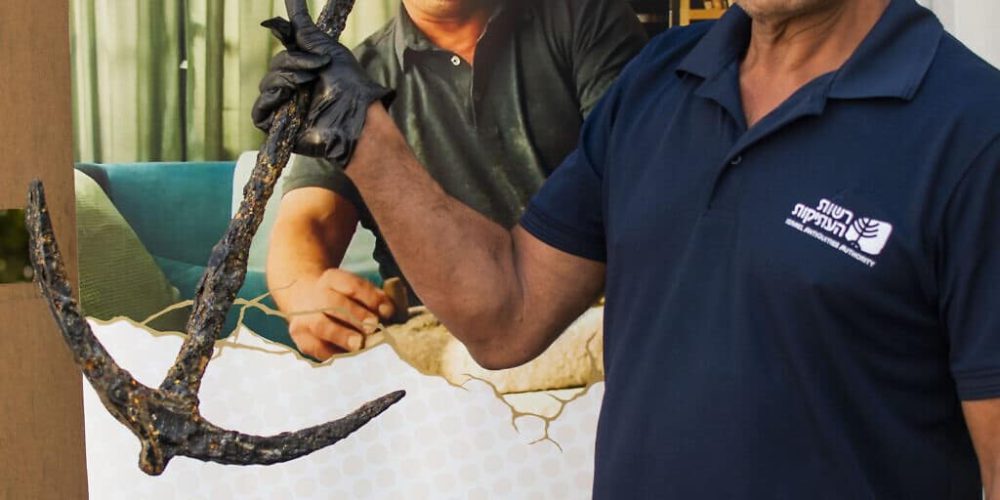
A very rare, small anchor estimated by experts to be more than 1,700 years old has been returned as part of a joint nationwide initiative launched by the Ministry of Heritage and the Isreal Antiquities Authority. An Israeli diver told officials that he discovered the anchor buried in the seabed off Palmahim Beach in 1996.
A diver identified only by name Moshe came across an anchor in the location where archaeological site Yavne-Yam is based. At first, he wasn’t sure what he actually got his hands on, as the object was covered in marine encrustation and sediment. Only after cleaning the antique he realized its historical significance.
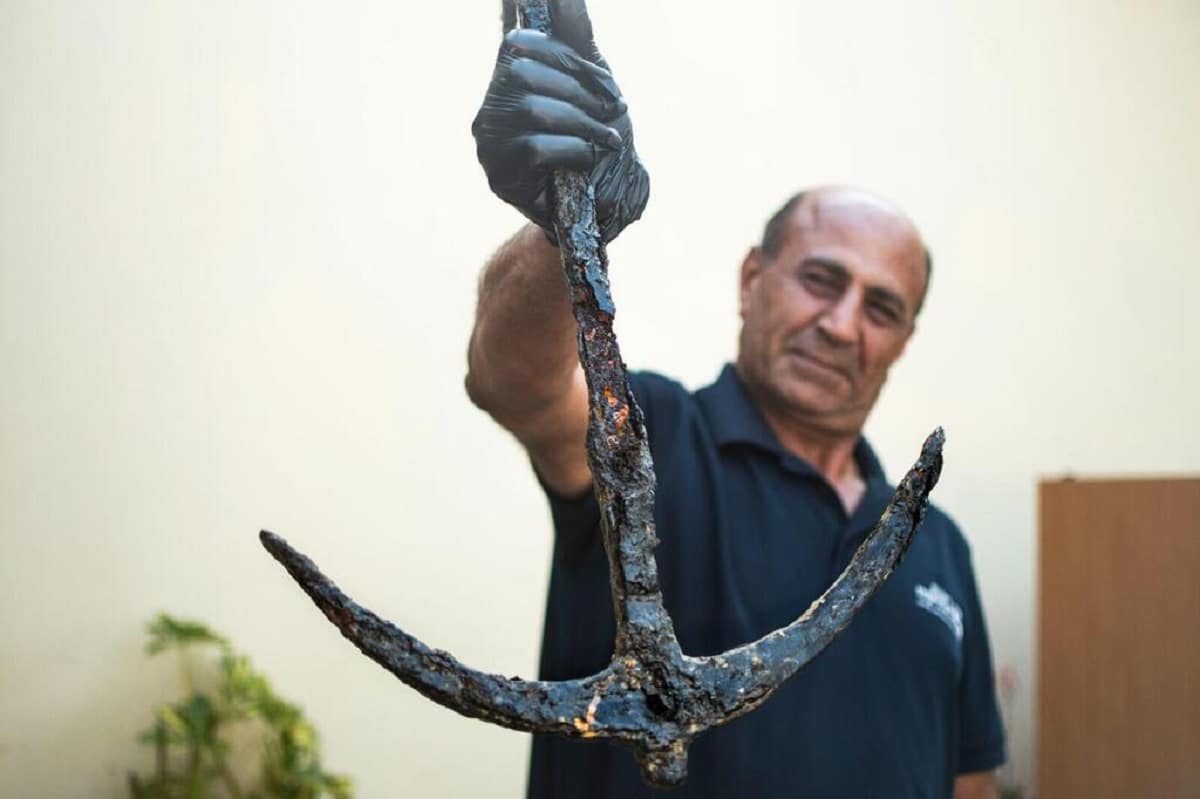
The Israel Antiquities Authority warned in its statement that the removal of a historical artifacts detaches it from its archaeological context. This leads to the loss of valuable informations about the site and the artifact itself.
The campaign, which has been launched, calls on citizens of Israel to return ancient artifacts that are held in their possession. At the same time, of course, there is a goal to raise public awareness of antiquities and their importance. As well as discovering valuable artifacts held by the people, and returning them to the right hands. This will enable specialists to take proper care of those artifacts and retrieve from them the important historical knowledge.
“The object brought to us is a small anchor from the Roman period, which may have been used to moor a fishing boat. These anchors begin to appear in the first century BC, until the third century AD. As a rule, we find ancient anchors in the sea, but in this case, it is an extremely small anchor, whose size and weight are absolutely rare,” said Kobi Sharvit, director of the marine archaeology unit at the IAA.
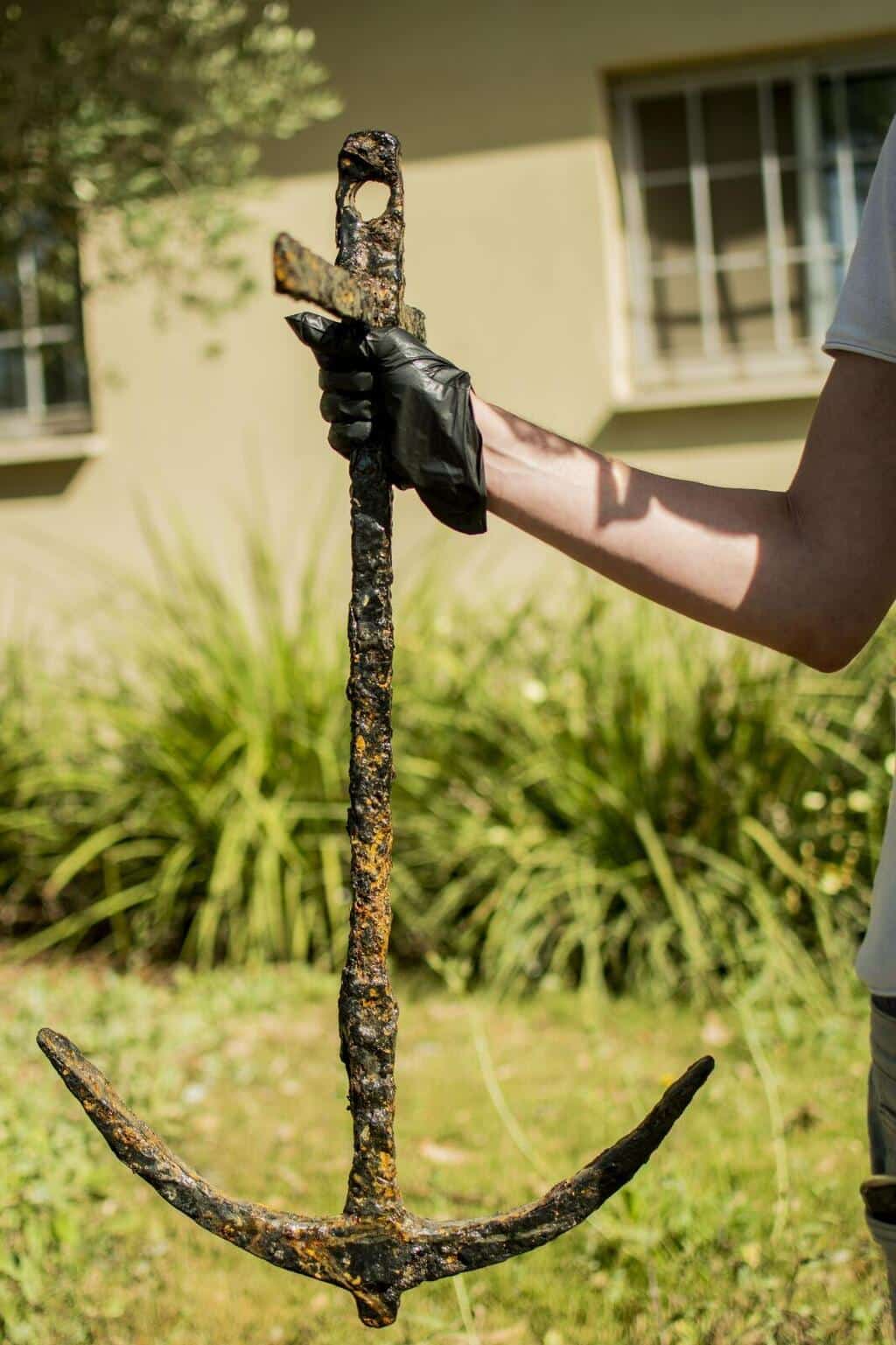
It turns out that anchors of this size are significantly less common than their larger equivalents. This is supposed to be due to the fact that they were much easier to save when the boat had problems during bad weather. That’s why archaeologists are far more likely to find large and heavy anchors on the seabed.
“It is not that there were not small anchors in ancient times, but that we have discovered few of them; It can be assumed that the reason for the small anchors that have not been discovered yet, is that when a small shop got into trouble at sea, the lightweight anchor could be pulled back to the ship so that it did not have to be abandoned on the spot,” he explained.
The site where the relic was found by Israeli diver is an ancient anchorage that has been mentioned in historical records. Considering the explanations of Israeli experts, the large number of artifacts resting on the bottom in its area should not be a surprise to anyone.
“The Yavne-Yam anchorage, where – according to Moshe’s report – the anchor was found, underwent upheavals during the Roman period,” Sharvit explained further. “[The book] Hashmonaim 2 states that after Judah the Maccabee learned that the residents of Yavneh were plotting to sink the ships of their Jewish neighbors, he and his army raided the anchorage and set fire to all the ships docked there.”
While the return of the anchor to the authorities is a positive outcome of the entire campaign, it is unfortunately also an example of how easy it is to damage an ancient historical artifact without the proper knowledge and skills. The anchor was cleaned of the marine sediment covering it in a manner that did not comply with the conservational craft, which unfortunately caused some damage. Specialists now hope to bring it to a proper condition to stop further degradation of the antiquity.
Researchers raise awareness that removing historical finds from the water and separating them from their archaeological context, without preparing proper documentation, leads to the loss of valuable information about the site.
The antiquities that will be returned will help expand knowledge of the centuries-old history of these lands. In turn, after proper examination, cataloging and preservation, some of the antiquities will enrich the museum’s exhibitions, where they will be available to the public.

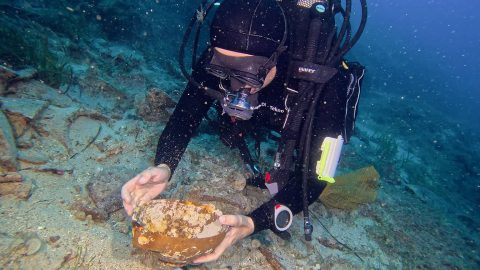
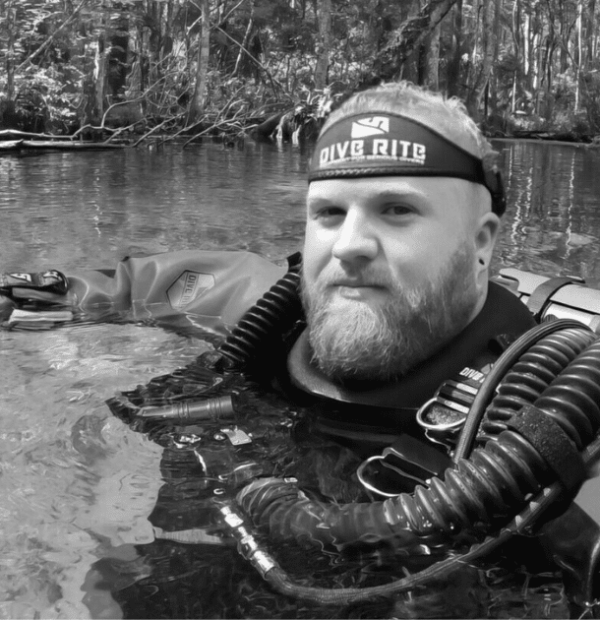



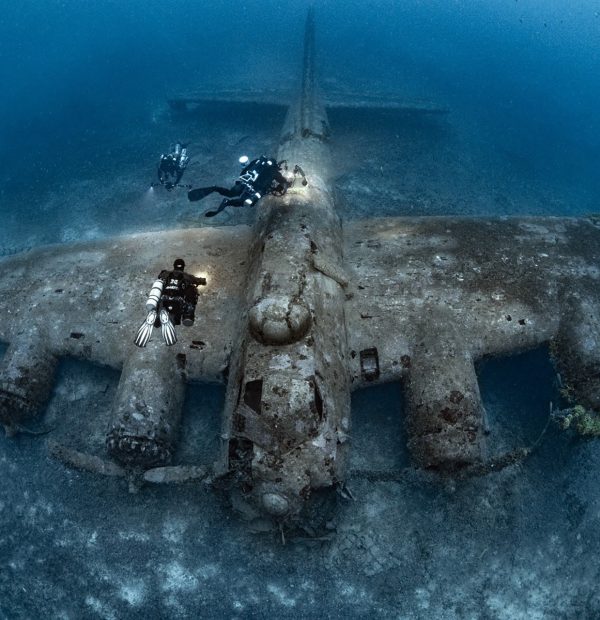

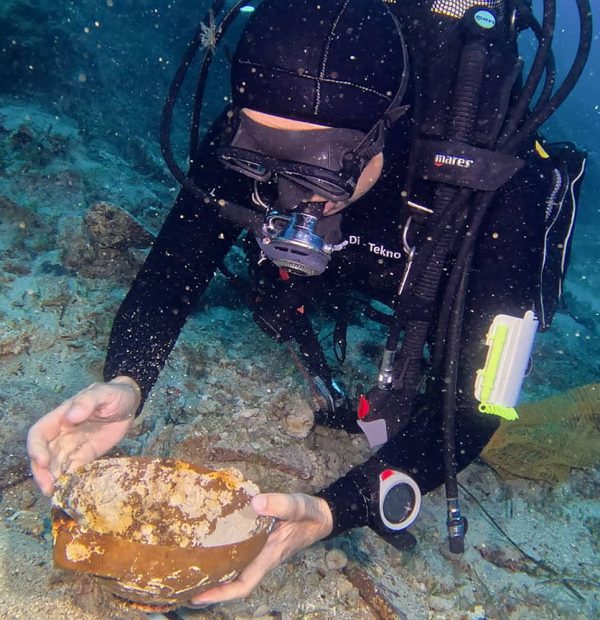

Welcome to DIVERS24.COM, your daily source of scuba news, freediving, scuba diving information, and equipment reviews. Our comprehensive coverage of the dive industry from A to Z provides you with all the latest scuba news, training updates, underwater photography tips, and everything else related to scuba diving. Whether you’re a beginner or an experienced diver looking for more knowledge about scuba gear or techniques – we’ve got it covered! With our in-depth articles written by experienced divers who have been there and done that, you are sure to find exactly what you need here at Divers24.com. Dive into scuba news today!
Underwater Media Sp. z o.o.
Szafarnia 11/F8,
80-755 Gdansk, Poland
Welcome to DIVERS24.COM, your daily source of scuba news, freediving, and scuba diving information. Sign in for a weekly news update and discount coupons for dive gear and apparel.
@2023 - underwatermedia.pl. All Right Reserved. Designed and Developed by Tworzenie stron internetowych Gdansk

The Divers24 portal is currently the largest online medium treating diving in Poland. Since 2010 we have been providing interesting and important information from Poland and around the world on all forms of diving and related activities.
Contact us: info@divers24.com